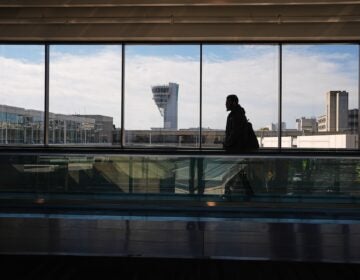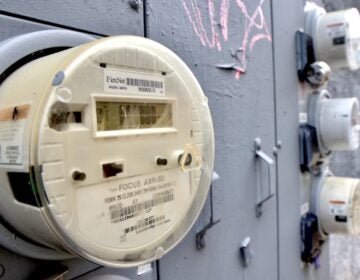Previewing Philadelphia’s hearings on Comcast
As Mayor Michael Nutter’s administration prepares to host a series of town-hall style hearings about Comcast this week, members of Philadelphia City Council will be tuning in as they prepare for their own hearings later this spring.
Among those watching will be Lance Haver, Council’s new director of civic engagement, who until recently served as the city’s consumer advocate.
Haver sees the ongoing franchise negotiations with Comcast — talks that will establish what Comcast pays or provides in exchange for the right to dig up the city’s streets and climb its utility poles — as a chance to shore up the city’s economic foundations. The company provides a “high value” service, Haver said, but widespread customer frustration undercuts its ability to grow and serve the city well.
A new agreement could ensure that Comcast offers affordable Internet access citywide and improves the quality of its underlying network, Haver said, helping the economic prospects of residents and businesses alike.
Comcast officials, however, believe that the federal regulations guiding cable TV franchise agreements prohibit the city from making any Internet-related requests; they say the new agreement has to be about cable TV services alone. Despite these objections, the Nutter administration has signaled that it plans to pursue a broader set of improvements.
Council has yet to set its own agenda for its upcoming hearings, but those forums are likely to be similar to Nutter’s. We sat down with Haver to see what he expects to see as the public chapter of the franchise negotiations gets under way.
The following exchange was lightly edited for clarity and length.
WHYY: What’s at stake for consumers with these negotiations?
Haver: As we think about the cable franchise being renewed, we have to consider two very important things. The first is that the Internet is no longer something you can live without if you want to live a middle-class life. If you want to do your banking, apply for government benefits, apply for a job, do basic research — you have to have the Internet.
Without it, you are shut out — your kids can’t do their homework, you can’t access the government the same way, you can’t even get a job in the same way. That’s why it’s important that we have universal, affordable Internet access.
WHYY: What do you expect to hear from residents once the hearings get going?
Haver: I expect consumers to say that prices for cable television and the Internet are too high, that the service is not acceptable, and the pricing is so confusing that people have no idea what they’re paying for or what they’re getting. That what we want as a city is affordable cable TV, universal access to the Internet, and pricing that is transparent, understandable and affordable.
WHYY: Among the points made in the city-sponsored Comcast survey was that the city and Comcast both are running on what amount to 20th century networks, and both are badly in need of an upgrade. What’s the benefit to the average citizen of that kind of investment?
Haver: Upgrading the technology is important not for today, but for tomorrow and next year and 10 years coming. We want to have more opportunities for startup businesses, for people who will want to use technology in ways we can’t envision today. We want state-of-the-art connectivity so that we can continue to improve.
What it’s going to be like 20 years from now — it’s very difficult to say. But we’ll make it much easier for Philadelphia to become a center for high-tech innovation if we have the tools we need, which means upgrading the system to state of the art.
WHYY: People will often talk of Comcast as a “monopoly,” even though there are other providers for both TV and Internet. Is the company getting a bad rap?
Haver: It’s fair to think about it as a monopoly, because the choices aren’t very good. Verizon isn’t available throughout the city. Satellite TV doesn’t offer the same Internet services you can get from Comcast.
It’s very difficult not to think of it as a utility, and I don’t think there’s any harm in thinking of it as a utility. We’re giving them a franchise. The city of Philadelphia is giving Comcast a right of way over our properties. Over our streets. Over our homes! The city has every right to negotiate a better deal, and what we want people to do is come to those hearings and to say what they want.
WHYY: Should the city be inviting other providers in?
Haver: I think the city should open up the possibility of municipal ownership, or to anyone else who wants to come. The best way to find out what the best deal is, is to see what the interest is, in whomever wants to provide it.
WHYY: The Comcast/Time Warner merger is now officially dead, and a former Comcast executive has written that much of the opposition probably came from Comcast’s own unhappy customers. He wrote that it’s time for the company to “hear those voices and respond” if it wants to grow. Does that ring true to you?
Haver: I think so – the amount of people who took time to take the city’s survey to complain is a measure of people’s dissatisfaction. More and more, what I hear are complaints about the service.
Comcast provides a very high-value service for working families. Many of us are going to spend $75 to $100 if we go out on a date. Most working families can’t afford that kind of money — but they can get a whole month of cable TV for the same price.
So it remains real value. The problem is, we don’t know what we’re buying. When we have a complaint, we can’t get get it resolved. When there’s a billing issue, we have no idea where to turn.
Those of us who study economics are told that the free market can only work if there’s transparency in pricing. And, clearly with Comcast, there’s some issues around the transparency. We don’t know what we’re paying for, we don’t know what the bill is for, all we know is that we’re not getting what we want at a price that we want.
WHYY: This week’s hearings were organized by the Nutter administration. When Council conducts hearings of its own, will it take up any different issues, or will the agenda be about the same?
Haver: I think they’re the same issues. What we’re hoping is that citizens come to these hearings thinking about what they want to get.
Twenty years from now, we don’t know what technology will be like. But the better our Internet capabilities, the more likely businesses are to come and innovate here. We want those things. We’d like to see Comcast continue to grow in the city of Philadelphia, to buy its supplies from businesses that are in the city, and continue to help our economy. But we want to do that at a fair price.
WHYY is your source for fact-based, in-depth journalism and information. As a nonprofit organization, we rely on financial support from readers like you. Please give today.




